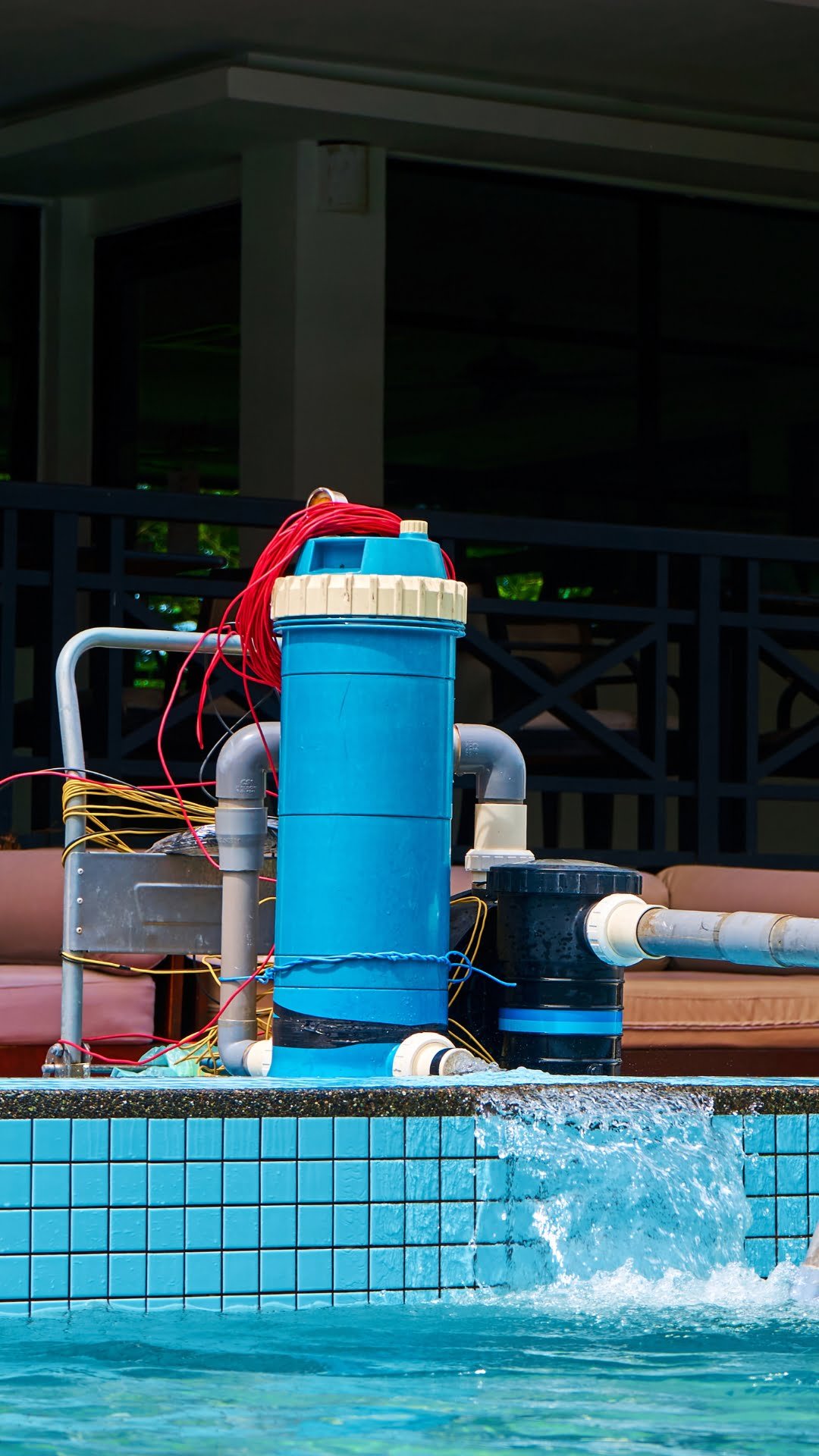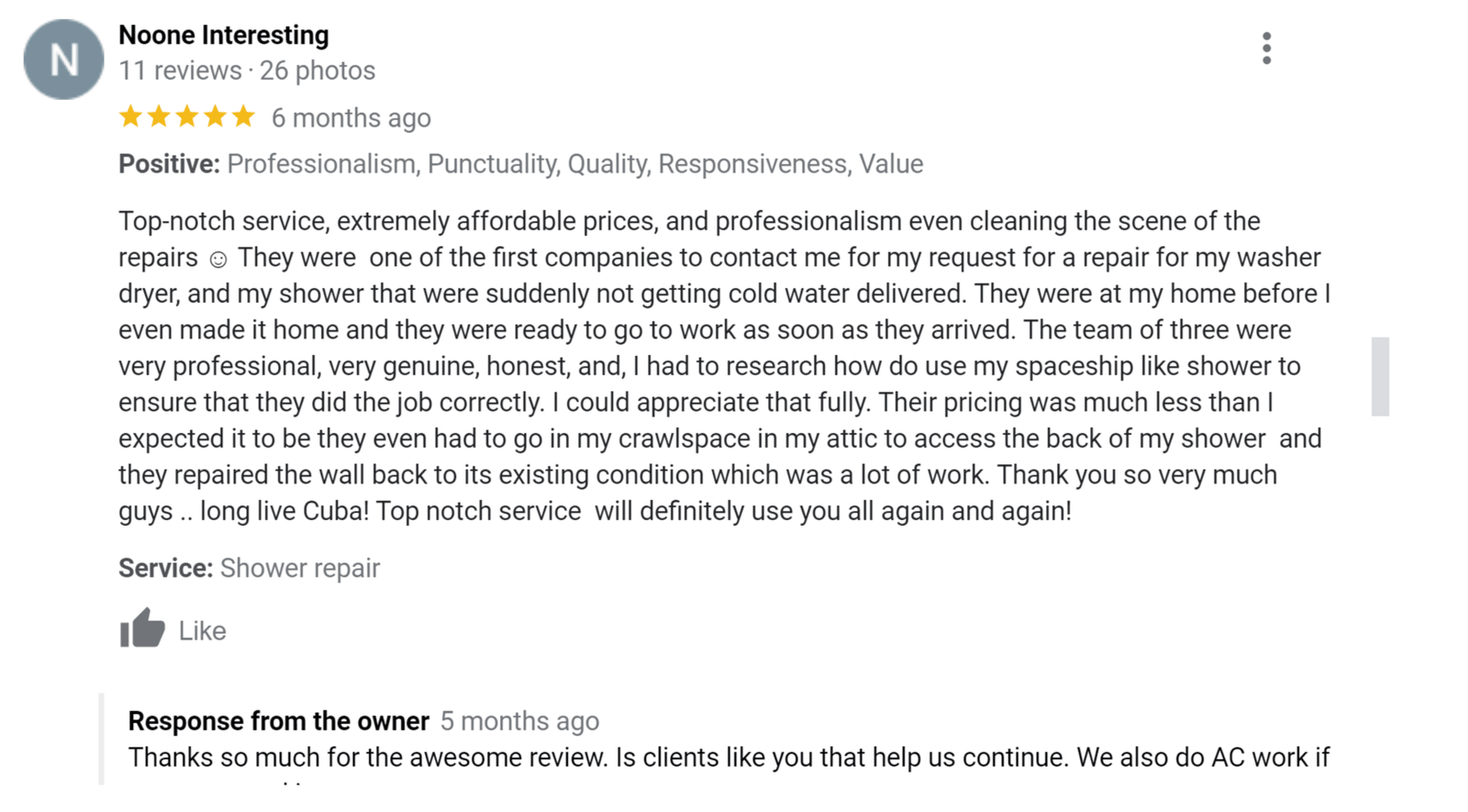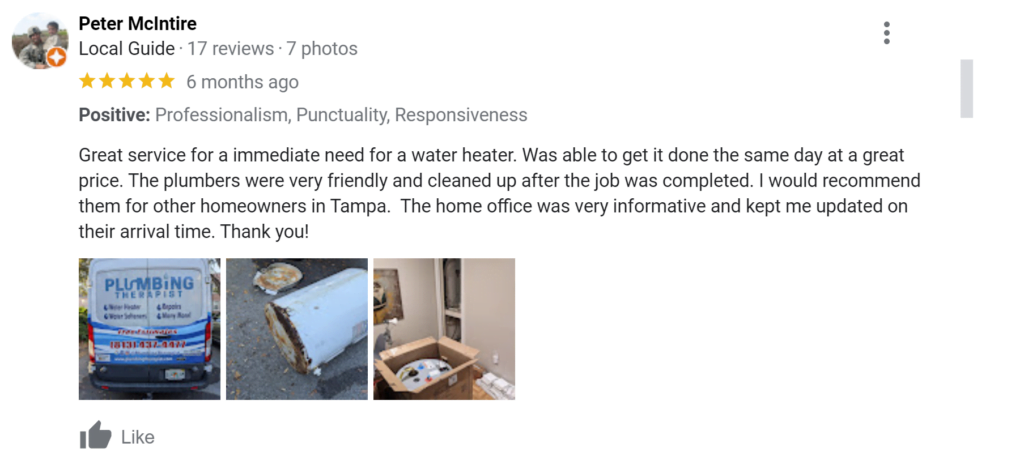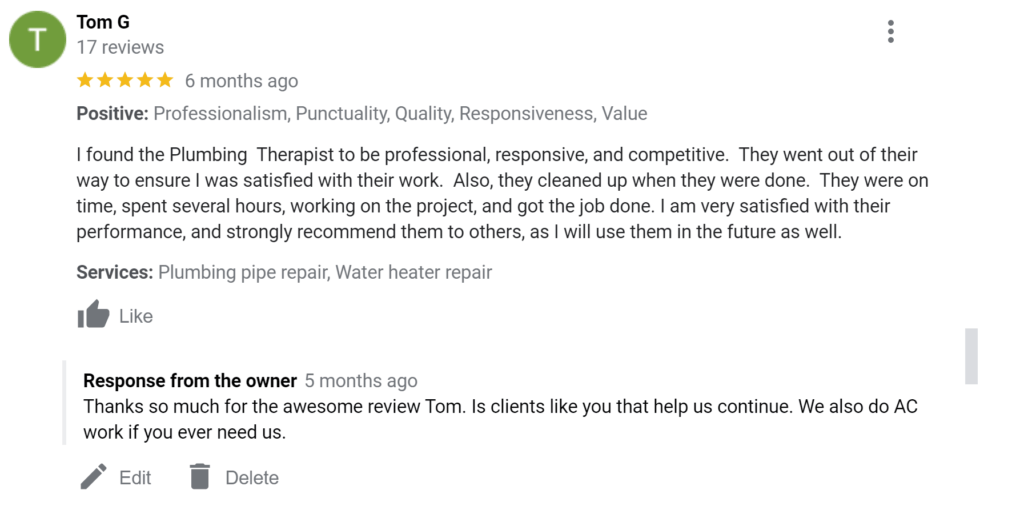Pool Pump Replacement
Expert Pool Pump Replacement by Plumbing Therapist in Tampa Bay. Professional, efficient service for a perfect pool experience. Contact us for reliable solutions.
Do You Need Our Help ?
Feel free to contact us now
$99 Water Heater Flush + Free Plumbing System Inspection
Pool Pump Replacement in Tampa Bay
Revitalize Your Pool Experience with Expert Pool Pump Replacement Services in Hillsborough County, Pinellas County, and Pasco County
Welcome to Plumbing Therapist, your trusted partner in maintaining the heart of your pool – the pool pump. Located in the vibrant Tampa Bay area, we specialize in providing top-notch pool pump replacement services that ensure your pool remains a source of joy and relaxation.
Why Choose Plumbing Therapist for Your Pool Pump Replacement?
- Local Expertise: As a Tampa Bay-based company, we understand the local climate and its impact on pool maintenance needs.
- Qualified Technicians: Our team comprises experienced professionals skilled in the latest pool pump technologies.
- Customer-Centric Service: We prioritize your satisfaction, offering personalized solutions tailored to your pool’s specific requirements.
- Efficiency and Reliability: We strive to complete replacements swiftly without compromising on quality, minimizing downtime.
Our Pool Pump Replacement Process
- Assessment: Our experts conduct a thorough evaluation of your current pool pump, identifying issues and advising on the best course of action.
- Selection Guidance: We help you choose the ideal pool pump that suits your pool size, type, and usage needs.
- Professional Installation: Our technicians ensure a seamless installation process, adhering to safety standards and industry best practices.
- Testing and Calibration: Post-installation, we test the system for optimal performance and make necessary adjustments for efficiency.
- Maintenance Tips: We provide essential tips and guidance for maintaining your new pool pump, prolonging its lifespan.
Comprehensive Pool Services
Beyond pool pump replacement, Plumbing Therapist offers a range of services to keep your pool in top condition, including:
- Pool plumbing repairs and maintenance
- Pool heater installation and repair
- Pool filtration system services
- Regular pool maintenance and inspections
Contact Us Today
Ready for a pool pump replacement or need more information? Contact Plumbing Therapist today at (813)-437-4477. Our friendly team is here to assist you in making your pool the perfect backyard oasis.

Why partner with Plumbing Therapist?
Quality, Affordability, and Expertise.

No Hidden or Unexpected Charges

Free Estimates & Online Booking Available

Professionally Trained Technicians

Honesty is Guaranteed

Quick Communication & Service Within 24 Hours

400+ 5 Star Reviews

What are the signs that I need to replace my pool pump?
Recognizing when to replace your pool pump is crucial for maintaining an efficient and enjoyable pool. Here are some common signs that indicate it might be time for a replacement:
Age of the Pump: Pool pumps typically last about 8-12 years. If yours is approaching or has surpassed this age range, it might be time to consider a replacement, especially if you’re encountering frequent issues.
Strange Noises: Unusual sounds like grinding, screeching, or humming from the pump can indicate internal problems. These noises often suggest issues with the motor or bearings, which might require a replacement.
Reduced Water Flow: If you notice that the water flow through your pool’s filtration system has decreased, it could be a sign that your pump is losing efficiency. This can lead to inadequate filtration and water quality issues.
Frequent Overheating: Pumps that overheat and shut down frequently are a sign of a failing motor. Overheating can be caused by various issues, including electrical problems or a motor that’s working too hard due to age or damage.
Visible Damage: Cracks, leaks, or rust on the pump body or its components can lead to a decrease in performance and efficiency. Visible damage often warrants a replacement, especially if repairs are not feasible or cost-effective.
Constant Need for Repairs: If you find yourself frequently repairing the pump, it might be more economical in the long run to replace it. Frequent repairs can be a sign that the pump is nearing the end of its useful life.
High Energy Bills: An old or malfunctioning pump can become less efficient and consume more energy. If you notice a significant increase in your energy bills, it could be due to an inefficient pool pump.
Poor Water Quality: If you’re struggling to keep your pool water clear and clean despite regular maintenance, your pump might not be circulating water effectively.
If you’re experiencing any of these issues with your pool pump, it might be time to consult with a professional like Plumbing Therapist in Tampa Bay for an assessment and potential replacement. A new pool pump can improve your pool’s efficiency, reduce energy costs, and enhance your overall pool experience.
If you would like more information, feel free to give them a call at (813)-437-4477 or you can book online and get their latest discount!
Customer Testimonials: Real Experiences with Plumbing Therapist
We proudly share the experiences and stories of our valued clients. Their feedback provides a glimpse into the quality of service and commitment to excellence we uphold at Plumbing Therapist. You'll read firsthand how our plumbing solutions have improved comfort and efficiency in homes across Tampa Bay. These testimonials illustrate our dedication to customer satisfaction and the difference our expert services can make.




Your questions answered
Common Pool Pump Replacement Questions:
When should I replace my pool pump?
Replacing your pool pump at the right time is crucial for maintaining an efficient and healthy pool environment. Here are key indicators that it might be time to replace your pool pump:
Age of the Pump: The average lifespan of a pool pump is typically around 8 to 12 years. If your pump is within or beyond this range, it’s wise to consider replacement, especially if you’re experiencing other issues.
Frequent Repairs: If you find yourself repairing the pump often, especially if those repairs are becoming increasingly costly, it might be more economical to replace it.
Loud Noises: Unusual sounds like grinding, screeching, or humming can indicate bearing or motor issues. Persistent noise issues often suggest it’s time for a replacement.
Reduced Efficiency: If your pump is not circulating water as effectively as it used to, or if you notice a significant decrease in water flow, this could be a sign that the pump is losing its efficiency.
Visible Damage: Signs of wear and tear, such as cracks, leaks, or rust, can impair the pump’s functionality. Visible damage often cannot be repaired effectively and warrants a replacement.
High Energy Bills: Older pumps, especially single-speed models, are less energy-efficient than newer, variable-speed models. If your energy bills are unusually high, upgrading to a more efficient pump can be cost-effective in the long run.
Inconsistent Pool Cleaning: If your pool is not staying as clean as it used to, despite regular maintenance, it could be due to an underperforming pump.
Overheating and Shutting Off: A pump that frequently overheats and shuts off is a sign of a failing motor, which typically requires a replacement.
Technological Upgrades: Advancements in pool pump technology, like variable speed pumps, offer greater energy efficiency and quieter operation. Upgrading to a newer model can provide long-term benefits.
Regulatory Compliance: In some regions, regulations may require pool pumps to meet certain energy efficiency standards. Upgrading to a compliant model might be necessary.
If you’re experiencing one or more of these issues, it’s a good idea to consult with a professional, like those at Plumbing Therapist in Tampa Bay, to evaluate your pool pump’s condition and discuss replacement options.
Will a new pool pump save me money on energy costs?
Yes, a new pool pump can save you money on energy costs, and here’s how:
Higher Energy Efficiency: Modern pool pumps, especially variable-speed models, are designed to be much more energy-efficient compared to older, single-speed pumps. Variable-speed pumps can adjust their speed and energy use based on the pool’s needs, which means they consume less electricity.
Optimized Performance: Newer pumps are engineered for optimal performance. They can circulate water more effectively at lower speeds, reducing energy consumption while still maintaining pool cleanliness and chemical balance.
Reduced Running Time: With improved efficiency and performance, a new pump may not need to run as long as an older model to circulate and filter the pool water effectively, further reducing energy usage.
Energy Star Ratings: Many modern pool pumps come with Energy Star ratings, indicating they meet or exceed energy efficiency guidelines set by the U.S. Environmental Protection Agency (EPA). These models are often up to 65% more efficient than standard models.
Long-Term Savings: Although the initial cost of a new, energy-efficient pool pump might be higher, the reduction in energy consumption can lead to significant savings on your electricity bill over time, offsetting the initial investment.
Reduced Maintenance Costs: New pumps are less likely to need frequent repairs, further saving you money in maintenance costs.
Utility Rebates: In some areas, utility companies offer rebates for purchasing energy-efficient pool pumps, which can help offset the initial cost.
Environmental Impact: By using less electricity, you’re also reducing your carbon footprint, contributing to environmental conservation.
When considering a new pool pump, it’s important to choose the right size and type for your pool to maximize these energy savings. Consulting with a professional, like those at Plumbing Therapist in Tampa Bay, can ensure you select the most appropriate and cost-effective option for your needs.
Is it better to repair or replace a pool pump?
Deciding whether to repair or replace a pool pump depends on several factors. Here are some considerations to help you make an informed decision:
Age of the Pump: If your pool pump is old (typically 8-12 years or more), it might be more cost-effective to replace it. Older pumps are less efficient and more prone to breakdowns.
Cost of Repairs: Compare the cost of repairs to the cost of a new pump. A good rule of thumb is if the repair costs are more than 50% of the cost of a new pump, replacement might be the better option.
Frequency of Repairs: If you’re frequently repairing the pump, these costs can add up. Frequent repairs also indicate the pump may be nearing the end of its lifespan.
Energy Efficiency: Newer models are significantly more energy-efficient, especially variable-speed pumps. If your current pump is a single-speed model, upgrading can save you money on your energy bill in the long run.
Performance Issues: If the pump is not performing effectively (e.g., reduced water flow, not maintaining water clarity), and repairs have not improved the situation, replacement might be necessary.
Availability of Parts: For older pumps, replacement parts may be harder to find or more expensive, making repair less feasible.
Warranty Considerations: If your pump is still under warranty, repair might be the most cost-effective solution. Conversely, a new pump will come with a new warranty, offering future protection.
Technological Advancements: New pumps come with advanced features like programmable timers and improved safety features. If your current pump lacks these, upgrading could be beneficial.
Noise Level: Older pumps tend to be noisier. If noise is an issue, modern pumps offer quieter operation.
Regulatory Compliance: Some regions have specific energy efficiency requirements for pool pumps. Upgrading to a compliant model might be necessary.
In summary, if your pump is relatively new and the repair is minor, repairing might be the best choice. However, if the pump is old, frequently needs repairs, or is inefficient, replacing it could be more economical and beneficial in the long run. Consulting with a professional, like those at Plumbing Therapist in Tampa Bay, can provide you with tailored advice based on your specific situation.
What brand or model of pool pump is best?
The “best” brand or model of a pool pump can vary depending on your specific needs, pool size, and budget. However, there are several reputable brands known for their quality, efficiency, and durability in the pool pump industry. As of my last update in January 2022, here are some highly regarded brands and models:
Pentair:
- Pentair IntelliFlo: Known for its energy efficiency, this variable-speed pump is a popular choice. It’s quiet, programmable, and can lead to significant energy savings.
- Pentair SuperFlo: A more budget-friendly option, suitable for standard pools requiring a dependable, single-speed pump.
Hayward:
- Hayward EcoStar: This is a variable-speed pump that’s energy-efficient and has a user-friendly interface.
- Hayward Super Pump: A reliable single-speed pump, known for its durability and performance, suitable for a variety of pool types.
Jandy:
- Jandy Pro Series VS: Offers high efficiency with variable-speed control, and is often praised for its quiet operation.
Sta-Rite:
- Sta-Rite Max-E-Pro: A durable and energy-efficient choice, known for its strong performance in residential pools.
When choosing a pool pump, consider the following factors:
- Pool Size and Type: Ensure the pump is appropriately sized for your pool’s volume and type.
- Energy Efficiency: Look for Energy Star-rated models, especially variable-speed pumps, as they can significantly reduce energy costs.
- Noise Level: If the pump is near living areas, consider a model known for quiet operation.
- Features: Consider pumps with additional features like programmable timers, digital controls, and safety functions.
- Budget: Balance the initial cost with long-term energy savings and maintenance costs.
- Local Regulations: Some areas have specific requirements for pool pumps, especially regarding energy efficiency.
It’s also a good idea to consult with a local pool professional, like those at Plumbing Therapist in Tampa Bay, who can provide recommendations based on your specific regional climate, pool characteristics, and local energy regulations. Remember, the best choice will depend on your individual needs and circumstances.
When should I replace my pool pump?
Replacing your pool pump at the right time is essential for maintaining an efficient and healthy pool environment. Here are key indicators that it might be time to replace your pool pump:
Age of the Pump: The average lifespan of a pool pump is typically around 8 to 12 years. If your pump is within or beyond this range, it’s wise to consider replacement, especially if you’re experiencing other issues.
Frequent Repairs: If you find yourself repairing the pump often, especially if those repairs are becoming increasingly costly, it might be more economical to replace it.
Loud Noises: Unusual sounds like grinding, screeching, or humming can indicate bearing or motor issues. Persistent noise issues often suggest it’s time for a replacement.
Reduced Efficiency: If your pump is not circulating water as effectively as it used to, or if you notice a significant decrease in water flow, this could be a sign that the pump is losing its efficiency.
Visible Damage: Signs of wear and tear, such as cracks, leaks, or rust, can impair the pump’s functionality. Visible damage often cannot be repaired effectively and warrants a replacement.
High Energy Bills: Older pumps, especially single-speed models, are less energy-efficient than newer, variable-speed models. If your energy bills are unusually high, upgrading to a more efficient pump can be cost-effective in the long run.
Inconsistent Pool Cleaning: If your pool is not staying as clean as it used to, despite regular maintenance, it could be due to an underperforming pump.
Overheating and Shutting Off: A pump that frequently overheats and shuts off is a sign of a failing motor, which typically requires a replacement.
Technological Upgrades: Advancements in pool pump technology, like variable speed pumps, offer greater energy efficiency and quieter operation. Upgrading to a newer model can provide long-term benefits.
Regulatory Compliance: In some regions, regulations may require pool pumps to meet certain energy efficiency standards. Upgrading to a compliant model might be necessary.
If you’re experiencing one or more of these issues with your pool pump, it’s a good idea to consult with a professional, like those at Plumbing Therapist in Tampa Bay, to evaluate your pool pump’s condition and discuss replacement options.

